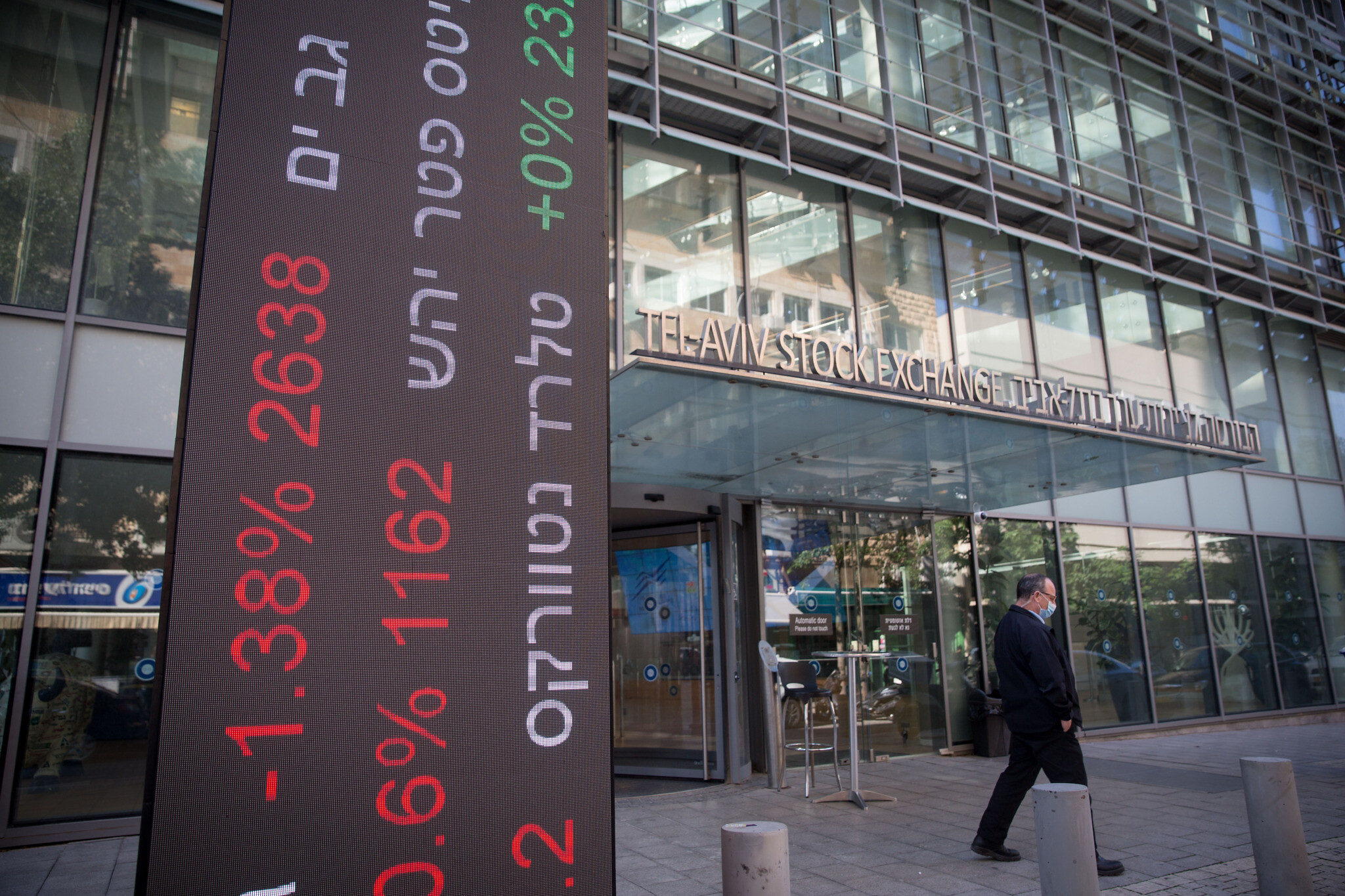How the Gaza War Put the Israeli Economy in Unprecedented Dilemmas

“This month, Fitch downgraded Israel’s credit rating from A+ to A.”
After 322 days of brutal warfare on the Gaza Strip, the Israeli economy is still suffering from the severe effects of that war, which are getting worse month after month.
As military operations continue and resources are depleted, “Israel” stands at a critical economic crossroads, with a sharp decline in growth, high inflation rates, a worsening fiscal deficit, and a downgrade in the credit rating.
Israel's 2024 budget deficit is expected to far exceed previous estimates due to colossal spending on its ongoing war on the Gaza Strip.
Given the geopolitical and domestic consequences of the Gaza war, Israel’s international standing is expected to continue to erode, amid pressure on the Israeli government to deal with the long-term financial and military repercussions.
Negative Performance
Expectations have recently increased regarding the economic situation in “Israel”, as prominent global financial institutions have questioned Israel’s ability to confront its economic challenges and ensure sustainable growth.
In an analysis issued by Citibank, the concerns expressed by international credit rating agencies, which recently lowered Israel's credit rating, were highlighted.
The three major international credit rating agencies, Standard & Poor's, Moody's, and Fitch, recently lowered their ratings on Israel, expressing their concern about the catastrophic consequences that a regional war could have.
Israeli Prime Minister Benjamin Netanyahu tried to reassure the Israelis by saying: “The downgrade of our rating is the result of Israel waging a war on multiple fronts that was imposed on us. Our rating will rise when we win.”
But economists expect the standard of living of the Israeli population to decline in the coming months, especially since inflation, which has been limited until now, has risen above the 3% ceiling set by the Treasury for this year.
On its part, JP Morgan issued a negative report on the performance of the Israeli economy. It lowered its forecast for the country's GDP growth for 2024 to 1.4% from 1.6%.
The bank highlighted the decline in investments and the sharp decline in exports as major factors contributing to the increasing economic challenges facing Israel.
It is expected that the Bank of Israel would cut interest rates by 0.25% next November, and continue to cut them to 0.75% by mid-2025.
These expectations differ from the view of the Bank of Israel, which adopts a more conservative approach to interest rate policy.
A recent economic analysis by the Hebrew newspaper Yedioth Ahronoth warned that the decline in growth would affect the economy, reduce services provided to the population, and lead to the risk of factories and businesses closing and laying off workers.
Cost of War
Signs of weakness have begun to appear in the Israeli economy as a result of the brutal aggression on the Gaza Strip that has been ongoing for more than 10 months, after years of strong growth, according to what was revealed by the French newspaper Les Echos.
The newspaper added that among these signs, the GDP per capita declined by 0.4% in the second quarter, according to figures from the Central Bureau of Statistics, in addition to a contraction in exports by 8.3%.
It explained that the contraction in economic activity contributed to a decline in tax revenues, which led to an increase in the budget deficit that now exceeds 8%.
According to Israeli economists, the Gaza war has cost the Israeli economy over $67.3 billion, and the army ministry wants an annual increase of at least $5.39 billion.
In addition, $10 billion will be added to fund the resettlement of more than 100,000 Israelis displaced from areas near the Gaza Strip or the border with Lebanon.
The value of repairs to damage caused to Israeli settlements by resistance missiles is estimated at $6 billion, according to the newspaper.
It is worth noting that these forecasts do not take into account the repercussions of a possible regional war between Iran, the Lebanese Hezbollah, and the Israeli Occupation.
In July, the fiscal deficit reached 8.1% of GDP over the previous 12 months, compared to 7.6% in June.
Government spending last month, at NIS 49.4 billion ($13 billion), exceeded state revenues of NIS 40.9 billion.
This was the fourth month in which the deficit exceeded the government’s target ceiling of 6.6% of GDP set for the end of 2024, noting that Israel recorded a fiscal deficit of 4.2% in 2023.
The Finance Ministry indicated in its monthly report at the time that the increase was mainly due to higher spending on defense and security, as well as by civilian ministries due to the war.
The annual inflation rate also rose in July to 3.2% from 2.9% the previous month, marking the highest reading since November 2023.
The increase was driven by increased price pressures on food, housing, education, culture and entertainment.
“Israel” also saw a significant rise in poverty and unemployment rates. The poverty rate rose by 2.6% points to 25.3% in mid-2024.
The unemployment rate also rose by 1.7% points to 6.2% in July 2024, meaning hundreds of thousands of jobs have been lost.

Economic Damage
As the financial burden of the Israeli war on Gaza mounts, Israel has come under increased scrutiny from ratings firms.
In February, it received its first-ever sovereign rating downgrade — by one notch to A2 — from Moody’s Investors Service, a decision joined by S&P Global Ratings last month.
Fitch expects that Israel’s government fiscal deficit will reach 7.8% of GDP in 2024, up from 4.1% in 2023.
It noted that this reflects the rise in large deficit spending related to military operations, containing economic damage, and the costs of resettling people in the north of the country.
But the agency noted that state revenues rebounded in the first half of 2024 to a level higher than the revised budget, and it expects them to remain strong through the rest of the year.
In the same context, Israeli retired General Yitzhak Brik warned that the ongoing Israeli aggression on the Gaza Strip is causing the destruction of the Israeli economy, noting that Finance Ministry officials fear that the deficit will reach 9% in 2024.
Brik said in an article published in the Hebrew newspaper Maariv: “Every day we hear about another company that has decided to lower Israel’s credit rating, which leads to an increase in the cost of loans that Israel borrows to finance the enormous cost of the war.”
“There are many factors pressuring Israel, and they warn of the collapse of its economy if the war of attrition in Gaza continues,” he added.

In turn, Palestinian analyst Ayman Youssef explained in a statement to Al-Estiklal that the Israeli economic scene will not rest as the Gaza war continues, expecting that the escalation may push economic stakeholders in Israel to increase pressure on Benjamin Netanyahu to force him to cease fire.
“The economic situation has deteriorated in Israel, especially with regard to the public debt and its rise to 70% of the Israeli GDP, which is an unprecedented percentage in Israel's history,” he said.
Mr. Youssef concluded that “the rise in debt and fiscal deficit, financial and economic instability, and increasing geopolitical risks make the Israeli economy likely to deteriorate further.”
Sources
- Fiscal deficit widens to 8.1% as state continues to shell out billions on war effort
- Citi sees Israel at risk of further rating downgrades
- Implications of Continuing the War on Israel’s Economy—Three Scenarios
- JPMorgan cuts Israel's 2024 growth forecast
- Gaza War Begins to Take a Toll on Israeli Economy [French]
- Israeli war costs economy over $67.3 billion: Economists











